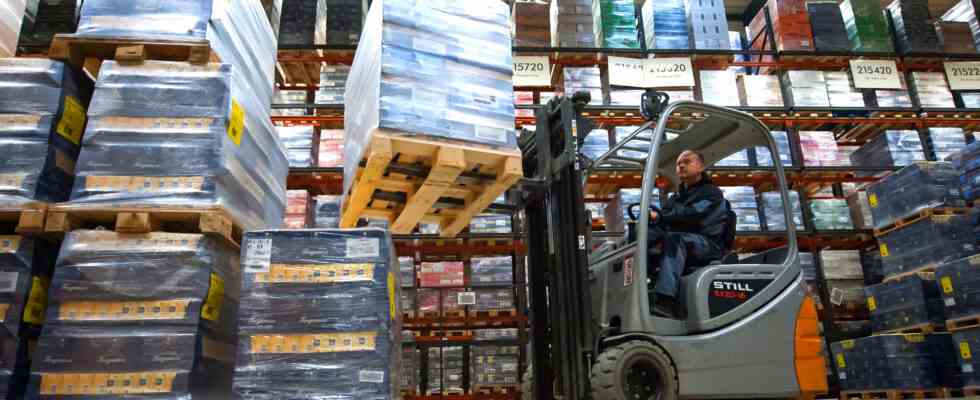Status: 11/23/2022 2:41 p.m
German companies are increasingly relying on sophisticated warehousing. The reason is the experience they have had since the beginning of the corona pandemic.
German industry is increasingly focusing on product storage. According to a survey by the Munich-based ifo Institute, many companies are reacting to the problems that have arisen with international supply chains in the past two years with warehousing. 68 percent have increased their warehouses, 65 percent have looked for additional suppliers, while 54 percent now monitor their supply chains better than before. 13 percent of the companies surveyed have increased their vertical range of manufacture and now manufacture the supplied parts themselves.
Complexity means vulnerability
“Companies are fighting on many fronts to avoid supply chain disruptions,” said Lisandra Flach, head of the ifo Center for Foreign Trade. “Supply chains have become more complex and therefore more prone to disruption. Small breaks can often cause production downtime.”
The results differ according to the size of the companies surveyed: Small and medium-sized companies in particular are increasing their stock levels (73 percent), large companies are doing this somewhat less (64 percent). Large companies are primarily looking for new suppliers (72 percent), which is what only 55 percent of smaller companies do. Large firms also monitor their supply chain more closely than smaller ones (59% vs. 48%). They also switch more between suppliers (43 percent vs. 30 percent). When it comes to bringing production back into the company, there are almost no differences: Large companies do this at 14 percent, smaller ones at 12 percent.
No deindustrialization feared
Ifo President Clemens Fuest does not expect deindustrialization in Germany, at least in the short term. Industries could not be relocated that quickly, the economist told the Reuters news agency. But the question is whether Germany will remain an attractive location in the long term. “In the case of energy-intensive industries, that is certainly in question. We lose competitiveness compared to other locations.” Further burdens such as a shortage of skilled workers and increasing protectionism would be added. “So I would take the issue seriously,” said Fuest.

